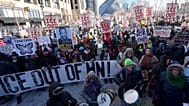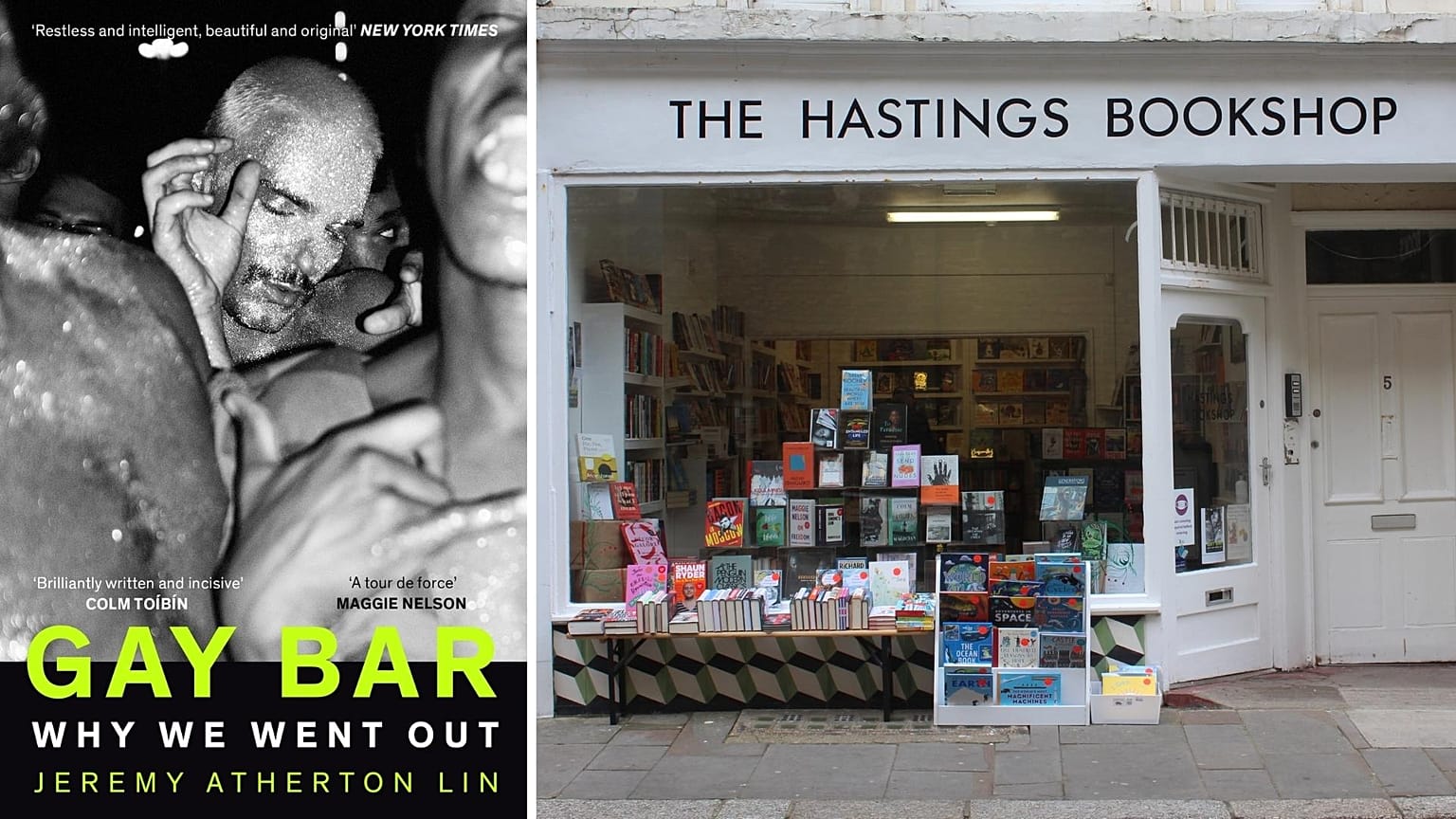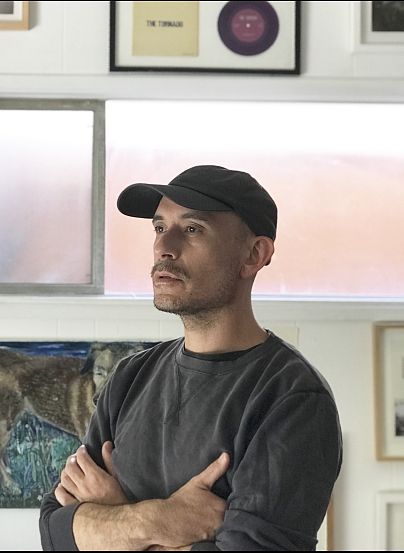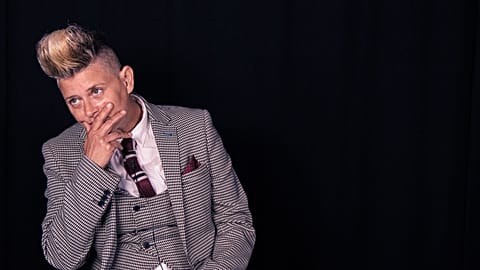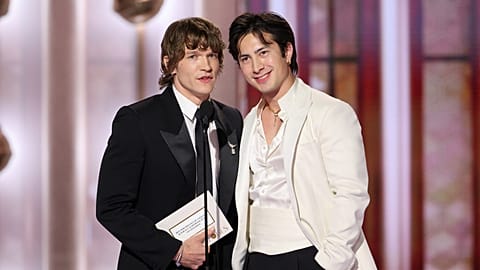If your life is more ‘early nights in bed reading’ than ‘early mornings staggering home’, then there’s a wealth of book discussion groups – operating in-person and online – for those wanting to meet like-minded queer folk.
Think ‘queer scene’ and it’s easy to imagine it mostly consists of sweat-soaked venues pumping out pop bangers. But for those who prefer a slightly less frenetic social life, there’s another type of queer club entirely: the LGBTQ+ book club.
If your life is more ‘early nights in bed reading’ than ‘early mornings staggering home’, then there’s a wealth of book discussion groups – operating in-person and online – for those wanting to meet like-minded queer folk.
One example is Queer Reads London, run by university friends Hannah and Alex off the back of a lockdown idea.
“At university we liked going out to Heaven and the other queer clubs in London but you obviously don’t make any long-term friends from that,” says Hannah. “In lockdown we both decided to read the same book at the same time and then call each other to talk about it. I genuinely can’t remember which one of us said ‘shall we try and see if anyone else would want to join in?’ but here we are. I’d not actually read a queer book before we did that.”
“I don’t really drink that much,” adds Alex, “and most gay events or clubs – Pride events, Mighty Hoopla – are alcohol based. Some people still drink while we discuss the book but it’s not the main point of it. If you go to a gay bar alone, people just assume you’re there to meet someone. Even if that’s not the case. Whereas here most people come alone.”
The group usually meets in queer pubs and bars dotted around London but has taken an away day to the seaside town of Margate for its Pride month meeting.
“I’m not a good reader if I don’t have a deadline to read a book by,” continues Hannah. “Life gets busy! We definitely read stuff me and Alex wouldn’t normally read, too, and the people who come along say the same. ‘Detransition, Baby’ by Torrey Peters led to one of the longest conversations of any book club event we’ve run because there was so much going on. There were lots of serious topics to discuss but it was still a really fun book to read.
“Something I’ve learned from Queer Reads London is that we all have such different experiences. We all share this one category together but naturally some things are a bigger part of one person’s experience than others. I love that lots of the books we’ve read have covered intersectionality of queer and other marginalised groups.”
Similar clubs are run out of bookshops directly – including one at London’s iconic Gay’s The Word store – as well as online, where groups can run via video calls or in a broader, more ethereal – and thus international – sense, with Instagram accounts such as @jordys.book.club and @ericcervini picking out great queer literature and suggesting it to their followers on a regular basis.
A recommendation from the latter helped Jeremy Atherton Lin, author of ‘Gay Bar’, find new followers and sell more copies of a book already winning over critics.
“I know my book has been in book clubs and I’d be fascinated to be a fly on the wall for their discussions,” says Jeremy. “But there’s a sense of privacy about a book group, you guys are being intimate with each other away from the author. I imagine people probably use the book as a conversation starter then end up bringing their own biographical experiences.
“I’m very explicit in the book about there being a lack of resolution to the ideas I’m talking about. So I love the idea that the conversations it starts carry on in social situations.”
He’s very sold on the idea of queer book groups providing a space for those who no longer find gay bars a suitable place to meet new friends, too. “To all be looking at one thing together is a very specific way of experiencing something,” he says, “both to share and not share your take on something. But are they flirty? Are you going to pull? I have no idea!”
Jeremy is Asian-American and while he now lives in the UK, he was recently on a trip back to the States. “I went to autograph-bomb a couple of shops that sell my books. The two I went to were full of hot young people in outfits," he says. "And I mean really full, like record stores used to be. I think there’s a bookshop revival alongside these book clubs. I guess a lot of them will be associated with a store.”
One such store is The Hastings Bookshop, over 100 kilometres from London (and significantly further from LA) but hosting its own queer book club among its numerous events.
“I don’t prescribe what the clubs read, they just kind of emerged from our customer base and we provide them with a discount for the book and provide a space for them to meet,” says owner Charlie Crabb. “The one we’re most closely related to is a Queer and Feminist Speculative Fiction Reading Group which is run by a friend of mine.
“When they pitched the idea we thought it was a niche thing, but there’s about 30 people signed up to the mailing list, maybe more. That’s the type of books we do well with in the shop, too. When I first owned the shop I wanted to stock interesting books but I thought I’d have to stock the mainstream bestsellers alongside them. But then I couldn’t actually sell the mainstream books, our customers weren’t interested in reading them. So they’ve gone from our shelves.”
Charlie is keen to extol the virtues of the vibrant scene in his hometown, too. “The idea that these things only go on in London isn’t the case. If you live outside of London there are actually better conditions for running a club like ours, because you’re not worried about the costs of things – your events don’t always have to fit into a commercial model to pay for an expensive property.
“You don’t have to be constantly thinking about how to monetise things to keep the business afloat, so you can do things which are perhaps a bit more experimental or that don’t bring more money into the business directly but create a community of people relating to books. Which should be the main aim of a bookshop. We’re talking to Hastings Pride to develop a literary tent at their event. This kind of stuff has been going on here for a while.”


